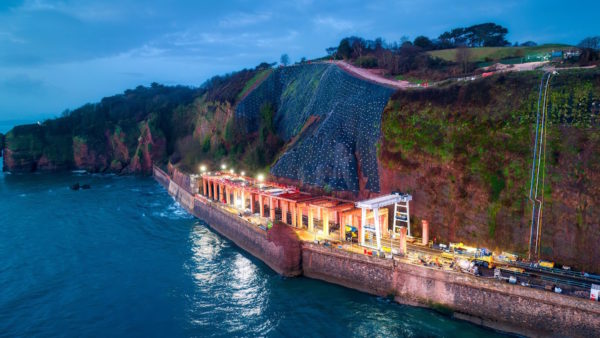
Sir Robert McAlpine’s adoption of materials passports on 1 Broadgate, in the City of London, triumphed in the Delivering Sustainability with Digital Innovation category, sponsored by Zero, at the Digital Construction Awards last night (2 July).
It is the first large-scale project in the UK to deploy them. By doing so, both McAlpine and its client British Land are achieving a milestone in their respective journeys toward net zero while also setting a standard for the industry to follow.

Materials passports are digital and interoperable datasets that collect the description of building materials to record what they are made of. They provide a reliable source of information that allows contractors, their clients and the supply chain to track the materials used during construction and throughout the life of a building. Crucially, they help minimise embodied carbon by reducing the wasteful usage of raw materials.
McAlpine’s implementation of materials passports at 1 Broadgate – a 12-storey 46,500 sq m commercial scheme – is centralised and uses a model-led sustainability reporting that can be easily adopted across the entire built environment sector.
In the past, materials sustainability information was only relevant to the project stage, capturing responsible sourcing certification and materials quantities. Information was collated during construction on materials delivered and associated responsible sourcing certification.
The materials passports used by McAlpine help to link the carbon data to the model, supporting the connection between specific elements and their carbon impact. This new technique allows the contractor to tie the carbon impact of individual elements to the graphical representation of the construction element in the form of 3D objects.
“This type of system is essential and should be used for all built assets, assembling accurate information on the building components and materials. It’s extremely practical and useful. It clearly has benefits in waste management and also effectively managing and maintaining the building.”
By having this retrievable information in a central hub, McAlpine will enable future building owners and end-users to have greater visibility and understanding of sourcing, carbon impact and even routes for circular economy management at end-of-life for materials.
The materials passports system is already producing results for McAlpine: during the demolition of the original 1 Broadgate building, 27% of the materials were reclaimed for reuse, either as part of the new structure or within the wider Broadgate campus. The process is also assisting British Land to help it understand the materials used in the project and identify potential opportunities for reuse.
If used at scale in the wider built environment, the impact of materials passports could be a game changer for the industry and a key step to achieving net zero targets.
Will Townsend, sustainability manager, and Nick Leach, director of digital construction, said: “It is a fantastic project. The team really engage with sustainability with a holistic approach. Sustainability is embedded in everything we do, particularly in the digital element of what we are delivering. The materials passport brings a lot of this sustainability to the fore, not just for us as a construction company, but also for the end users, which is fantastic.”
- AtkinsRéalis | Virtual Site Access
- Eckersley O’Callaghan | BayBuilder
- Ethos Engineering | Streamlining data visualisation for facility managers
- Furbnow | Digital retrofit platform
- ORIS Materials Intelligence/Sweco UK | Carbon assessment tool for infrastructure
- Sir Robert McAlpine | 1 Broadgate
Don’t miss out on BIM and digital construction news: sign up to receive the BIMplus newsletter.












